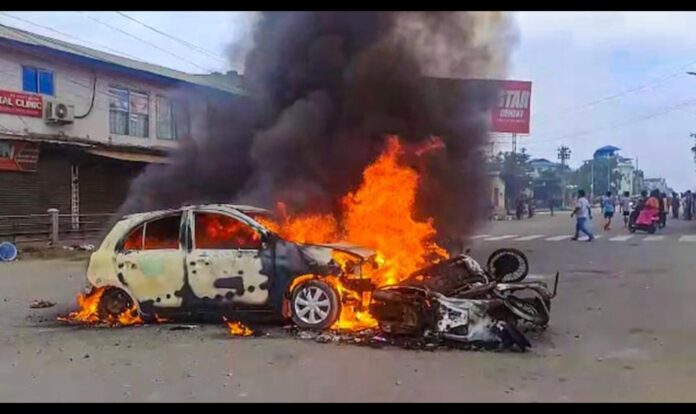In a recent development, the Supreme Court of India has refused to grant an urgent hearing regarding the deployment of armed forces in Manipur to protect the Kuki community amidst escalating ethnic violence. The decision came as a setback for those seeking immediate intervention to address the volatile situation. The Kuki community in Manipur has been facing a grave threat to their lives and properties due to ongoing ethnic clashes. Incidents of violence and targeted attacks have created an atmosphere of fear and insecurity among the Kuki population.
In light of these circumstances, concerned individuals and organizations had approached the Supreme Court, seeking an urgent hearing to ensure the deployment of armed forces for the protection of the Kuki people. However, the apex court, while acknowledging the seriousness of the matter, declined to grant an urgent hearing on the issue. The decision was based on a careful assessment of the situation and a consideration of various factors, including the current state of affairs and available legal mechanisms for addressing the conflict. The court’s decision does not imply a disregard for the plight of the Kuki community or an indifference to their safety. Rather, it reflects the court’s stance on the importance of following due process and allowing the existing mechanisms to function effectively.
The judiciary plays a vital role in upholding the rule of law, and it is essential to ensure that all avenues are explored before resorting to extraordinary measures such as the deployment of armed forces. The Supreme Court has emphasized that it remains committed to addressing the underlying issues of ethnic violence and preserving the rights and security of all citizens, including the Kuki community. It has urged the concerned parties to engage in peaceful dialogue and explore avenues for reconciliation and conflict resolution.
While the denial of an urgent hearing may be disappointing for those seeking immediate relief, it is important to recognize that the legal system operates on principles of fairness, thorough examination, and due process. The decision highlights the significance of pursuing a comprehensive and long-term approach to resolve the ethnic tensions in Manipur, ensuring the sustainable protection of all communities involved. As the situation unfolds, it is crucial for the relevant stakeholders, including the government, local authorities, community leaders, and civil society organizations, to work together to foster peace, address the root causes of the conflict, and restore harmony among the diverse communities in Manipur.


